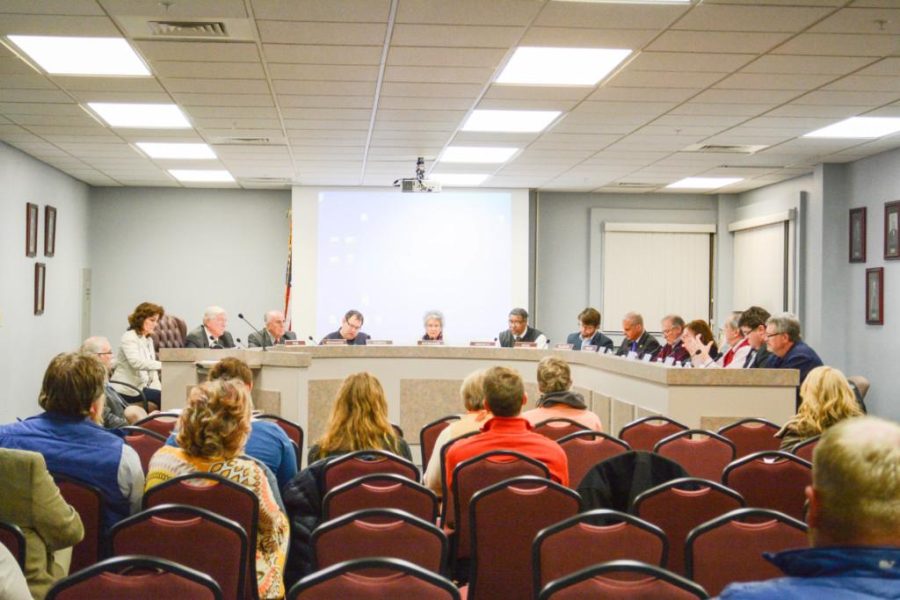Story by Destinee Marking, Staff writer
A one percent payroll tax may soon be imposed on those working in the city of Murray, including student workers.
The Murray City Council will hear the second and final reading of the ordinance and then vote on Aug. 24 at 6:30 p.m.
Mayor Jack Rose was the tie-breaking vote in favor of the tax during the first reading of the ordinance on Aug. 10.
If the payroll tax passes, it would go into effect starting on Jan. 1, 2018. The ordinance would also eliminate the city sticker. However, that would not occur until June 1, 2018.
Dan Miller, city councilman in favor of the tax, said making people who live and work in Murray buy a city sticker is not a reliable way to raise money. He said this generates nearly $1 million for the city, but not all of that comes from purchasing the stickers.
According to the Final Report of the Mayor’s Committee on Revenues, Needs and Expenditures read at the July 17 council meeting, “A considerable portion of that sum has been due to late fees and violations.”
Besides eliminating the city sticker, Miller said property taxes will be lowered to be more comparable to those in surrounding cities.
“In some ways it’s to try to make the economic model more in line with surrounding communities,” Miller said.
As for Murray State students who work on campus and in the city limits, Miller said the payroll tax will be a break because students won’t be paying for a city sticker out of pocket. Money will be taken out of their checks gradually with no risk of owing a fine, he said.
David Eaton, department of economics and finance department chair, said students who work a minimum wage job 15 hours per week during the school year earn $3,500 in one year. Students earning above minimum wage or working more than 15 hours will pay more under the payroll tax.
“Students who pay the prorated $35 city sticker would have to earn more than $3,500 in Murray in order to pay more under a payroll tax,” Eaton said.
City stickers expire on May 31 of each year. Prices begin at $50 in April, but gradually decrease, reaching $35 in August.
Councilmember Linda Cherry said she will vote against the payroll tax.
“It is an unfair tax,” Cherry said. “The greatest burden of this tax will fall on the backs of those who can least afford it.”
Cherry said the tax will benefit people like her and her husband who own property and have insurance because those taxes will decrease with the payroll tax. She said for people who do not own property or do not have insurance, a payroll tax will hurt them.
“All they get with this payroll tax is money taken out of their check every week,” Cherry said.
If the tax does not get approved, Cherry said she suggests raising the cost of the city sticker to increase annual revenue.
Larry Elkins, Calloway County judge executive, said the fiscal court has made its opposition of the payroll tax publicly known.
“This payroll tax is going to really hurt the people and the citizens of our community that can least afford it – the working class people,” Elkins said.
The meeting will be held in the council chambers of city hall and is open to the public.
If the ordinance passes, the city will continue to administer $150 fines until June 1, 2018 for those who do not purchase a city sticker.




























































































